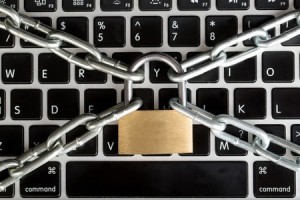Everyone knows the importance of installing malware and virus protection. Whenever you get a new laptop or device, a quick click to your preferred vendor is usually one of the first steps you have the computer connections to the Internet. But knowing how the programs work is almost as important as knowing how important they are.
How do malware programs work?
Most anti-malware programs compare downloads and new programs against a list of known malware signatures. In other words, they compare incoming data and code against recognizable bits of malware. If it finds a match, the new download is either blocked entirely or is more closely scrutinized.
Other types of antivirus and anti-malware tools investigate potential threats in different ways. They might test out suspect downloads in a closed environment, or a ‘sandbox,’ to see how it behaves. Some smart programs look at how downloads behave before weighing in. So most malware protections don’t just scan initial downloads and new activity. They also monitor your computer as a whole for new or suspicious behavior.
What do patches and new updates provide?
Malware is getting smarter and stronger all the time. Your tools need to update ahead of that curve to provide continuous security to your system. A lot of upgrades are centered around the program’s database of known threats. As the service provider and cybersecurity institutions identify new threats, they add them to the database. But if you don’t install the new patch or ignore the update alert, that new information is never added to your computer.
Updates can also improve control over the sandbox environment or add new warning signs for behavioral anti-malware programs to investigate. Basically, if your anti-malware was downloaded a year ago and never updated, it won’t know what to do against new threats. Virus creators and malicious actors know that people tend to be a bit lax on their updates, so they tend to focus on malware that doesn’t display any of the old warning signs.
Why should you leave the update schedule in the hands of your IT service?
Leaving update schedules up to your employees is bad for business. The same people who leave their computer in sleep mode instead of shutting it down for new updates also won’t update the software. Here are three reasons why leaving it in the hands of an administrator, especially a third-party administrator, is better:
1. You know that everyone’s device is up-to-date.
Some of your employees will update their anti-malware software as soon as they get the alert. Others might shut down their computer regularly enough that the system updates without their knowledge. But other updates might linger for days or weeks before they’re implemented.
When your company uses mobile devices that aren’t always on your network, it’s easier for unsecured devices to pick up a bug and bring it into the office. But, when control of the update schedule is centralized, you don’t have to worry about delays.
Centralized control also brings a stronger guarantee: you know that everyone is using the same program. BYOD policies and laptops that have been used by the same employees for years could have a random scattering of different antivirus programs, all with different levels of quality and privacy. But your IT service will both provide a program and ensure its updates.
2. You get a report so you can verify that your company is in compliance.
You don’t just want to know that everyone’s computer is updated. Depending on your industry, you might need regular proof of when updates happened and what types of updates they were. Regulatory agencies are getting more and more strict about data leaks, and professionals will give you records and receipts for your paper trail.
3. Internal emergencies won’t cause delays.
Even if you hand over anti-malware updates to a systems administrator in your office, there could still be delays. A website outage, a late product delivery, or even downsizing could get in the way of the schedule. But when you use a third-party IT service, the update schedule is preset and one of their business priorities.
If you want to make sure your anti-malware software is strong both now and in the future, browse our services to find the right package for your business.



